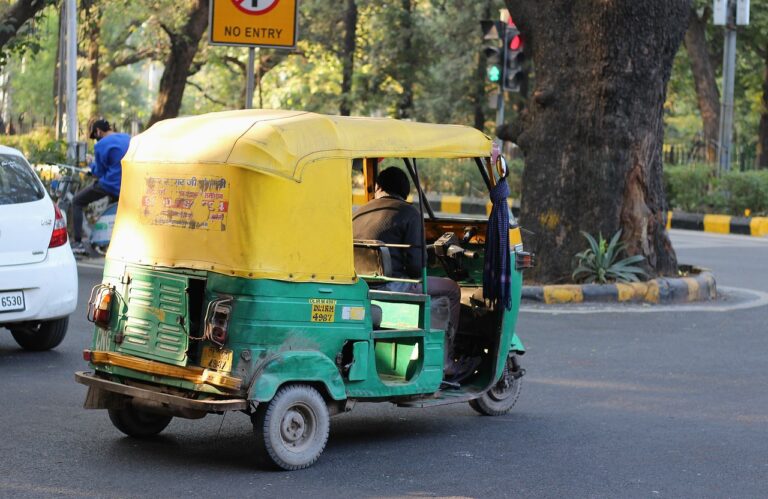Ensuring Compliance with Privacy Regulations in Autonomous Vehicle Surveillance
allpaanel, mahadev book login registration, cricket id online: As autonomous vehicle technology continues to advance, the need for surveillance within these vehicles has become increasingly prevalent. From monitoring passenger safety to ensuring compliance with traffic laws, surveillance systems in autonomous vehicles play a crucial role in their functionality. However, with the advancement of technology comes the need to address privacy concerns and comply with regulations that govern the use of surveillance data.
In this blog post, we will discuss the importance of ensuring compliance with privacy regulations in autonomous vehicle surveillance and provide tips on how to achieve this effectively.
Understanding Privacy Regulations in Autonomous Vehicle Surveillance
Privacy regulations play a significant role in governing the use of surveillance data in autonomous vehicles. These regulations are put in place to protect the privacy and data of passengers, pedestrians, and other individuals who may come into contact with autonomous vehicles. Failure to comply with these regulations can result in severe legal consequences, including fines and lawsuits.
Some of the key privacy regulations that govern the use of surveillance data in autonomous vehicles include:
– General Data Protection Regulation (GDPR): The GDPR is a comprehensive data protection regulation that applies to all companies operating within the European Union. It sets strict guidelines for the collection, processing, and storage of personal data, including surveillance data collected by autonomous vehicles.
– California Consumer Privacy Act (CCPA): The CCPA is a state-level privacy regulation in California that sets requirements for the collection and use of personal information. Autonomous vehicle manufacturers operating in California must comply with the CCPA to ensure the protection of consumer data.
– Federal Trade Commission (FTC) Regulations: The FTC enforces various regulations related to privacy and data protection in the United States. Autonomous vehicle manufacturers must adhere to FTC guidelines to ensure compliance with federal privacy regulations.
Tips for Ensuring Compliance with Privacy Regulations in Autonomous Vehicle Surveillance
Complying with privacy regulations in autonomous vehicle surveillance is crucial to protect the privacy of individuals and avoid legal consequences. Here are some tips to help ensure compliance with these regulations effectively:
1. Privacy by Design: Implement privacy measures into the design and development of surveillance systems in autonomous vehicles. By incorporating privacy principles from the outset, you can ensure that data protection is a priority throughout the development process.
2. Data Minimization: Minimize the collection and storage of personal data to the extent necessary for surveillance purposes. Avoid collecting excessive data that is not required for the operation of the autonomous vehicle.
3. Anonymization: Anonymize surveillance data whenever possible to protect the privacy of individuals. Remove personally identifiable information from surveillance footage to prevent the identification of passengers and other individuals.
4. Consent: Obtain consent from passengers and other individuals before collecting their personal data through surveillance systems in autonomous vehicles. Clearly inform individuals about the purpose of data collection and seek their explicit consent.
5. Data Security: Implement robust data security measures to protect surveillance data from unauthorized access, disclosure, and misuse. Encrypt data during transmission and storage to ensure its confidentiality and integrity.
6. Transparency: Be transparent about the use of surveillance data in autonomous vehicles. Clearly communicate to passengers and other individuals how their data is being collected, processed, and used.
7. Compliance Monitoring: Regularly monitor compliance with privacy regulations in autonomous vehicle surveillance. Conduct audits and assessments to identify potential compliance issues and take corrective actions promptly.
By following these tips, autonomous vehicle manufacturers can effectively ensure compliance with privacy regulations and protect the privacy of individuals in surveillance data.
FAQs
Q: What are the consequences of non-compliance with privacy regulations in autonomous vehicle surveillance?
A: Non-compliance with privacy regulations can result in severe legal consequences, including fines, penalties, and lawsuits. It can also damage the reputation of autonomous vehicle manufacturers and erode consumer trust.
Q: How can autonomous vehicle manufacturers ensure compliance with GDPR in surveillance data collection?
A: Autonomous vehicle manufacturers can ensure compliance with GDPR by implementing privacy by design principles, obtaining consent from individuals before collecting their personal data, and implementing robust data security measures.
Q: Are there any industry-specific privacy regulations that govern the use of surveillance data in autonomous vehicles?
A: Yes, there are industry-specific privacy regulations, such as the Automotive Information Sharing and Analysis Center (Auto-ISAC) guidelines, that provide recommendations for the secure collection and sharing of data in autonomous vehicles.
In conclusion, ensuring compliance with privacy regulations in autonomous vehicle surveillance is vital to protect the privacy of individuals and avoid legal consequences. By following the tips outlined in this blog post, autonomous vehicle manufacturers can effectively navigate privacy regulations and uphold the trust of consumers and regulators alike.







